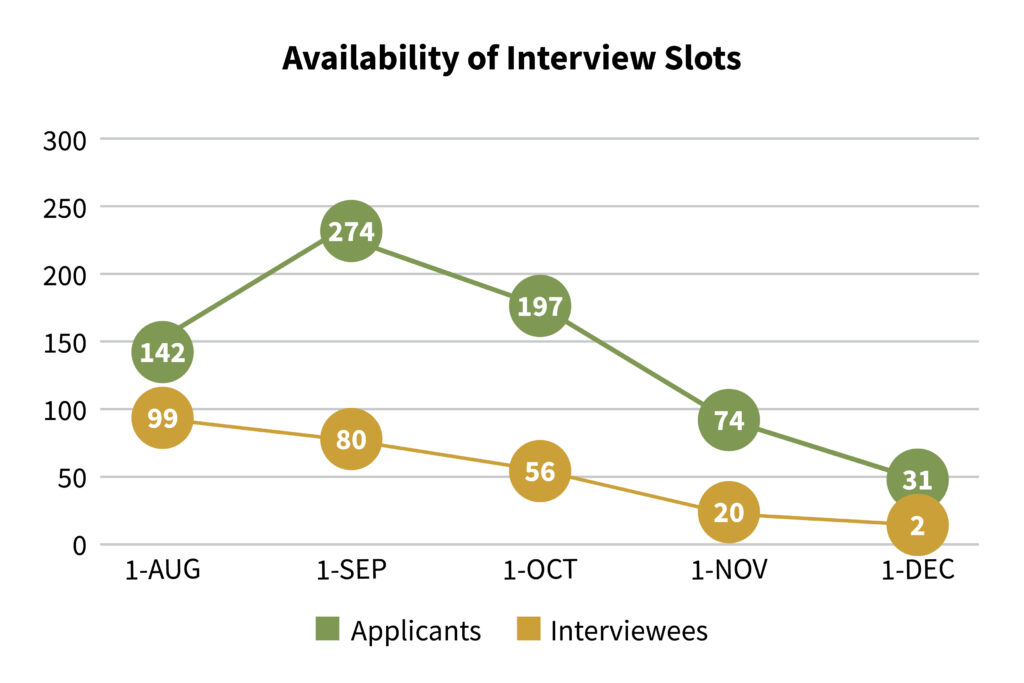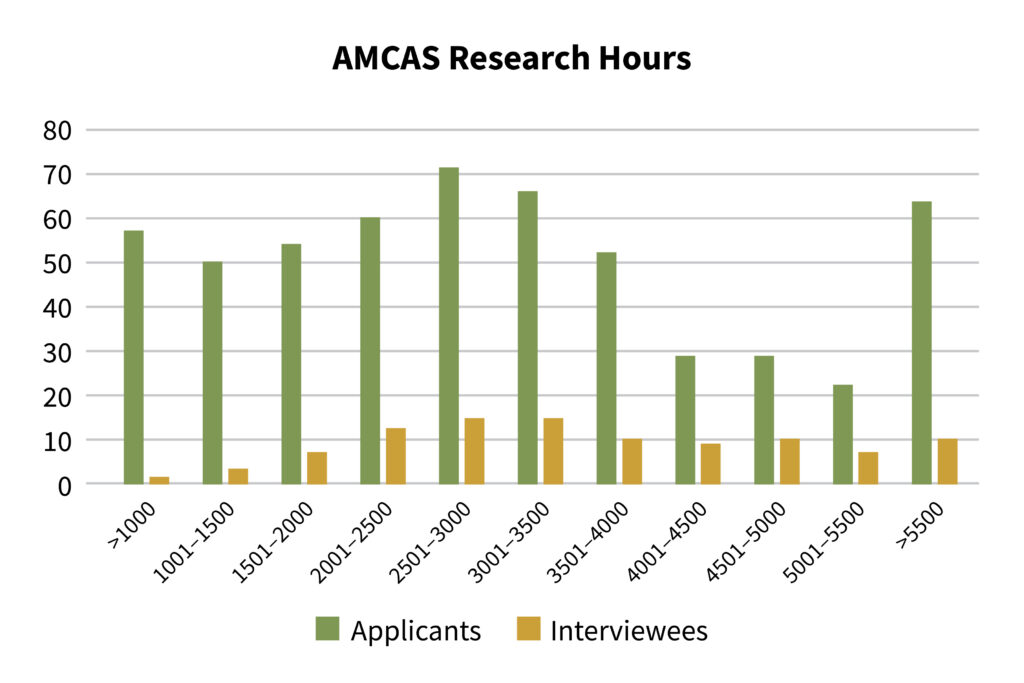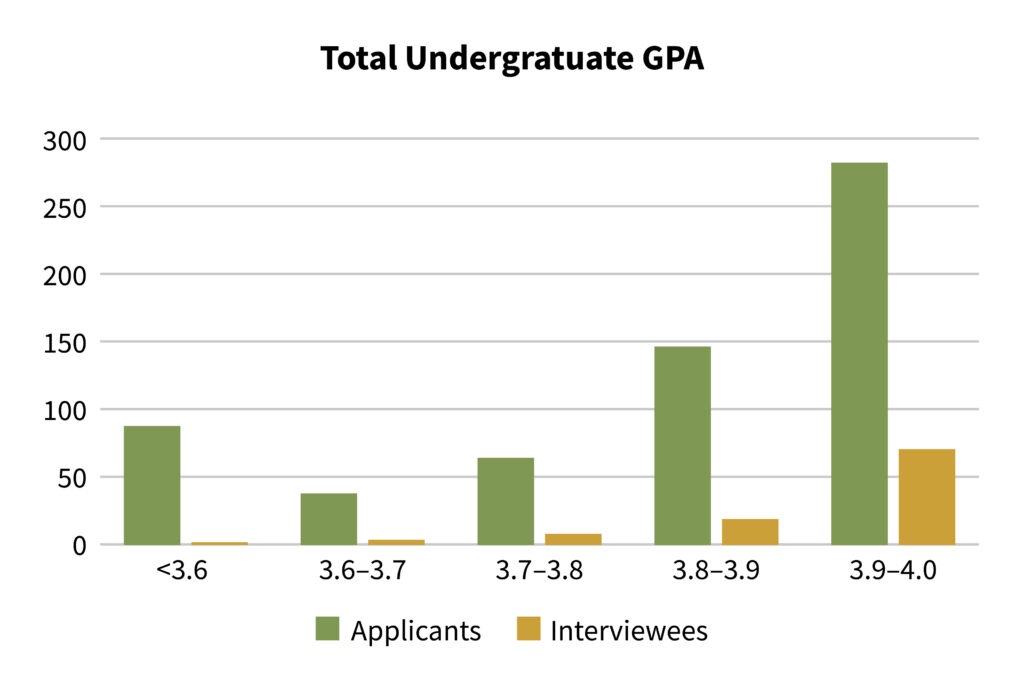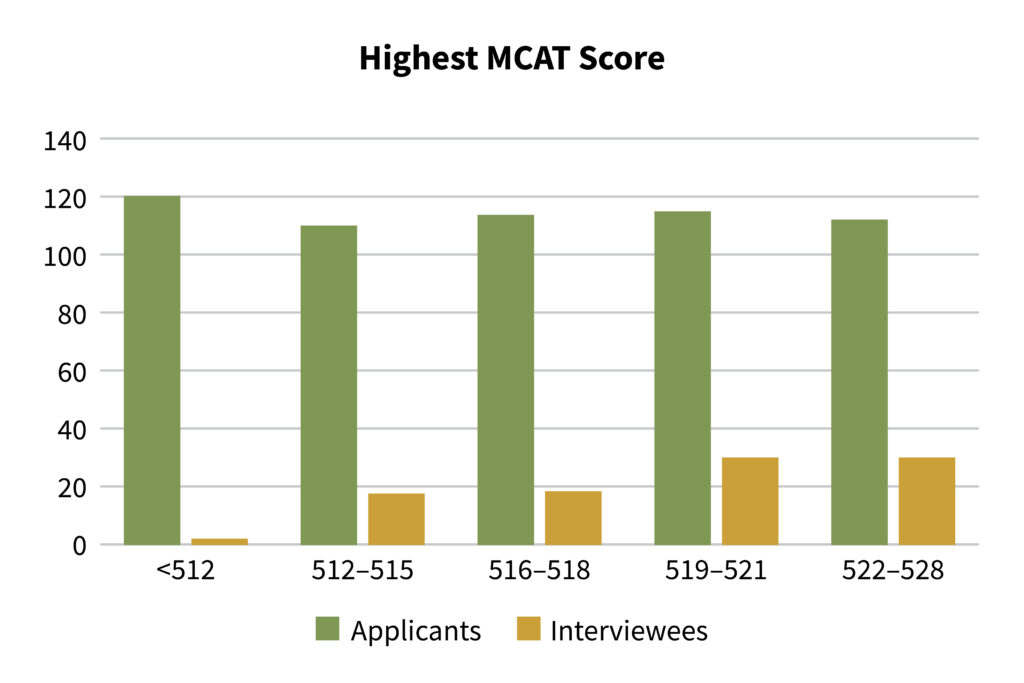Early applications encouraged
Applications undergo a 3-stage review process, which typically takes 2-4 weeks. Interviews are awarded on a rolling basis between early August and early December. A small number of applicants will be placed on an interview waitlist to allow the MSTP Committee to assess additional applications before making a final determination.
As the chart below documents, candidates whose application is not completed significantly before the Oct. 31 application deadline limit their chances of being offered an interview. Individuals who apply in October will compete for ~20 available interview slots, as opposed to the 99 slots that were available to individuals who apply in July. These data are for the 2023 applicant pool.

Research experience
The MSTP committee assesses potential for success as a physician-scientist based on a candidate’s research experience. In addition to research productivity, the committee considers an individual’s depth of understanding, commitment and perseverance, and any challenges they may have experienced in obtaining research opportunities. Most applicants will have at least two years of research exposure at the time they submit their application. While early research experiences may have been limited in scope, competitive candidates will demonstrate their ability to independently develop and conduct hypothesis-driven research projects. However, it should be noted that publications are not necessary; indeed, less than 30% of interviewed candidates had contributed to a publication at the time of application.
The chart below plots the number of research hours listed under the AMCAS Experience section for the 2023 application cycle.

Academic preparation
Rigorous undergraduate academic preparation is predictive of success in the medical and graduate curricula. There is no one undergraduate experience that is “right” for a physician-scientist. Our program actively seeks to enroll individuals from a wide variety of backgrounds. Currently, our 208 MSTP students hail from 114 different undergraduate institutions, among which are many smaller colleges and less research-intensive institutions. Furthermore, while the life sciences are heavily represented in our student body, we have individuals who majored in engineering, physics, psychology, economics, music performance and other “non-traditional” studies.
In addition to overall GPA, we evaluate the rigor of the curriculum and trends in GPA. Some individuals might have experienced challenging circumstances that impacted academic performance; these circumstances are taken into consideration in our evaluation of an individual’s academic preparation.
The chart below plots the undergraduate GPA for the 2023 application cycle.

MCAT distribution
MCAT scores have some predictive value in terms of performance on standardized exams in medical school and medical licensure. Therefore, they are considered in the evaluation of MD-PhD candidates. The MCAT score is of lesser importance than personal attributes, distance traveled, potential for an independent research career, and academic preparation.
The chart below plots the distribution of the highest MCAT scores for individuals in the 2023 applicant pool.
